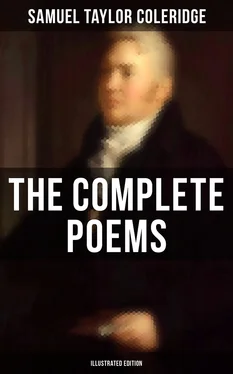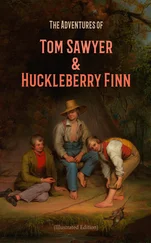1 ...7 8 9 11 12 13 ...45 1.
The parching air
Burns frore and cold performs the effect of fire.
Paradise Lost , ii. 594.
2. Insects by their smallness, the mammoth by its hugeness, terrible.
3. In the foam-islands in a fiercely boiling pool, at the bottom of a waterfall, there is sameness from infinite change.
4. The excess of humanity and disinterestedness in polite society, the desire not to give pain, for example, not to talk of your own diseases and misfortunes, and to introduce nothing but what will give pleasure, destroy all humanity and disinterestedness, by making it intolerable, through desuetude, to listen to the complaints of our equals, or of any, where the listening does not gratify or excite some vicious pride and sense of superiority.
5. It is difficult to say whether a perfectly unheard-of subject or a crambe bis cocta , if chosen by a man of genius, would excite in the higher degree the sense of novelty. Take, as an instance of the latter, the "Orestes" of Sotheby.
6. Dark with excess of light.
7. Self-absorption and worldly-mindedness (N.B.—The latter a most philosophical word).
8. The dim intellect sees an absolute oneness, the perfectly clear intellect knowingly perceives it. Distinction and plurality lie in the betwixt.
9. The naked savage and the gymnosophist.
10. Nothing and intensest absolute being.
11. Despotism and ochlocracy.
ABSTRUSE RESEARCH
A dirty business! "How," said I, with a great effort to conquer my laziness and a great wish to rest in the generality, "what do you include under the words 'dirty business'"? I note this in order to remember the reluctance the mind has in general to analysis.
The soul within the body—can I, any way, compare this to the reflection of the fire seen through my window on the solid wall, seeming, of course, within the solid wall, as deep within as the distance of the fire from the wall. I fear I can make nothing out of it; but why do I always hurry away from any interesting thought to do something uninteresting? As, for instance, when this thought struck me, I turned off my attention suddenly and went to look for the copy of Wolff which I had missed. Is it a cowardice of all deep feeling, even though pleasurable? or is it laziness? or is it something less obvious than either? Is it connected with my epistolary embarrassments?
["The window of my library at Keswick is opposite to the fireplace. At the coming on of evening, it was my frequent amusement to watch the image or reflection of the fire that seemed burning in the bushes or between the trees in different parts of the garden."— The Friend. Coleridge's Works , ii. 135.]
As I was sitting at the foot of my bed, reading with my face downwards, I saw a phantom of my face upon the nightcap which lay just on the middle of my pillow—it was indistinct but of bright colours, and came only as my head bent low. Was it the action of the rays of my face upon my eyes? that is, did my eyes see my face, and from the sidelong and faint action of the rays place the image in that situation? But I moved the nightcap and I lost it.
Dec. 19, 1803, morning
I have only to shut my eyes to feel how ignorant I am whence these forms and coloured forms, and colours distinguishable beyond what I can distinguish, derive their birth. These varying and infinite co-present colours, what are they? I ask, to what do they belong in my waking remembrance? and almost never receive an answer. Only I perceive and know that whatever I change, in any part of me, produces some change in these eye-spectra; as, for instance, if I press my legs or change sides.
OF STREAMY ASSOCIATION
I will at least make the attempt to explain to myself the origin of moral evil from the streamy nature of association, which thinking curbs and rudders. Do not the bad passions in dreams throw light and show of proof upon this hypothesis? If I can but explain those passions I shall gain light, I am sure. A clue! a clue! a Hecatomb à la Pythagoras, if it unlabyrinth me.
December 28, 1803, 11 o'clock
I note the beautiful luminous shadow of my pencil-point which follows it from the candle, or rather goes before it and illuminates the word I am writing. But, to resume, take in the blessedness of innocent children, the blessedness of sweet sleep, do they or do they not contradict the argument of evil from streamy associations? I hope not, but all is to be thought over and into . And what is the height and ideal of mere association? Delirium. But how far is this state produced by pain and denaturalisation? And what are these? In short, as far as I can see anything in this total mist, vice is imperfect yet existing volition, giving diseased currents of association, because it yields on all sides and yet is —so, too, think of madness!
A DOUBTFUL EXPERIMENT
December 30th, half-past one o'clock, or, rather, Saturday morning, December 31st, put rolled bits of paper, many tiny bits of wick, some tallow, and the soap together. The whole flame, equal in size to half-a-dozen candles, did not give the light of one, and the letters of the book looked by the unsteady flare just as through tears or in dizziness—every line of every letter dislocated into angles, or like the mica in crumbly stones.
THE PSYCHOLOGY OF MOTION
The experiment over leaf illustrates my idea of motion, namely, that it is a presence and absence rapidly alternating, so that the fits of absence exist continuously in the feeling, and the fits of presence vice versâ continuedly in the eye. Of course I am speaking of motion psychologically, not physically, what it is in us, not what the supposed mundane cause may be. I believe that what we call motion is our consciousness of motion arising from the interruption of motion, the action of the soul in suffering resistance. Free unresisted action, the going forth of the soul, life without consciousness, is, properly, infinite, that is unlimited. For whatever resists limits, and whatever is unresisted is unlimited. This, psychologically speaking, is space, while the sense of resistance or limitation is time, and motion is a synthesis of the two. The closest approach of time to space forms co-existent multitude.
RECOLLECTION AND REMEMBRANCE
There is an important distinction between the memory or reminiscent faculty of sensation which young children seem to possess in so small a degree, from their perpetual desire to have a tale repeated to them, and the memory of words and images which the very same children manifestly possess in an unusual degree, even to sealing-wax accuracy of retention and representation.
THE ETHICS OF SPINOZA
If Spinoza had left the doctrine of miracles untouched, and had not written so powerfully in support of universal toleration, his ethics would never have brought on him the charge of Atheism. His doctrine, in this respect, is truly and severely orthodox, in the reformed Church; neither do I know that the Church of Rome has authoritatively decided between the Spinosists and Scotists in their great controversy on the nature of the being which creatures possess.
A UNITARIAN SCHOOLMAN
Creation is explained by Joannes Scotus Erigena as only a manifestation of the unity of God in forms— et fit et facit, et creat et creatur . Lib. 4. p. 7.
P. 8. A curious and highly-philosophical account of the Trinity, and completely Unitarian. God is, is wise, and is living. The essence we call Father, the wisdom Son, the life the Holy Spirit. And he positively affirms that these three exist only as distinguishable relations— habitudines ; and he states the whole doctrine to be an invention and condescension of Theology to the intellect of man, which must define , and consequently personify , in order to understand, and must have some phantom of understanding in order to keep alive in the heart the substantial faith. They are fuel to the sacred fire—in the empyrean it may burn without fuel, and they who do so are seraphs.
Читать дальше












